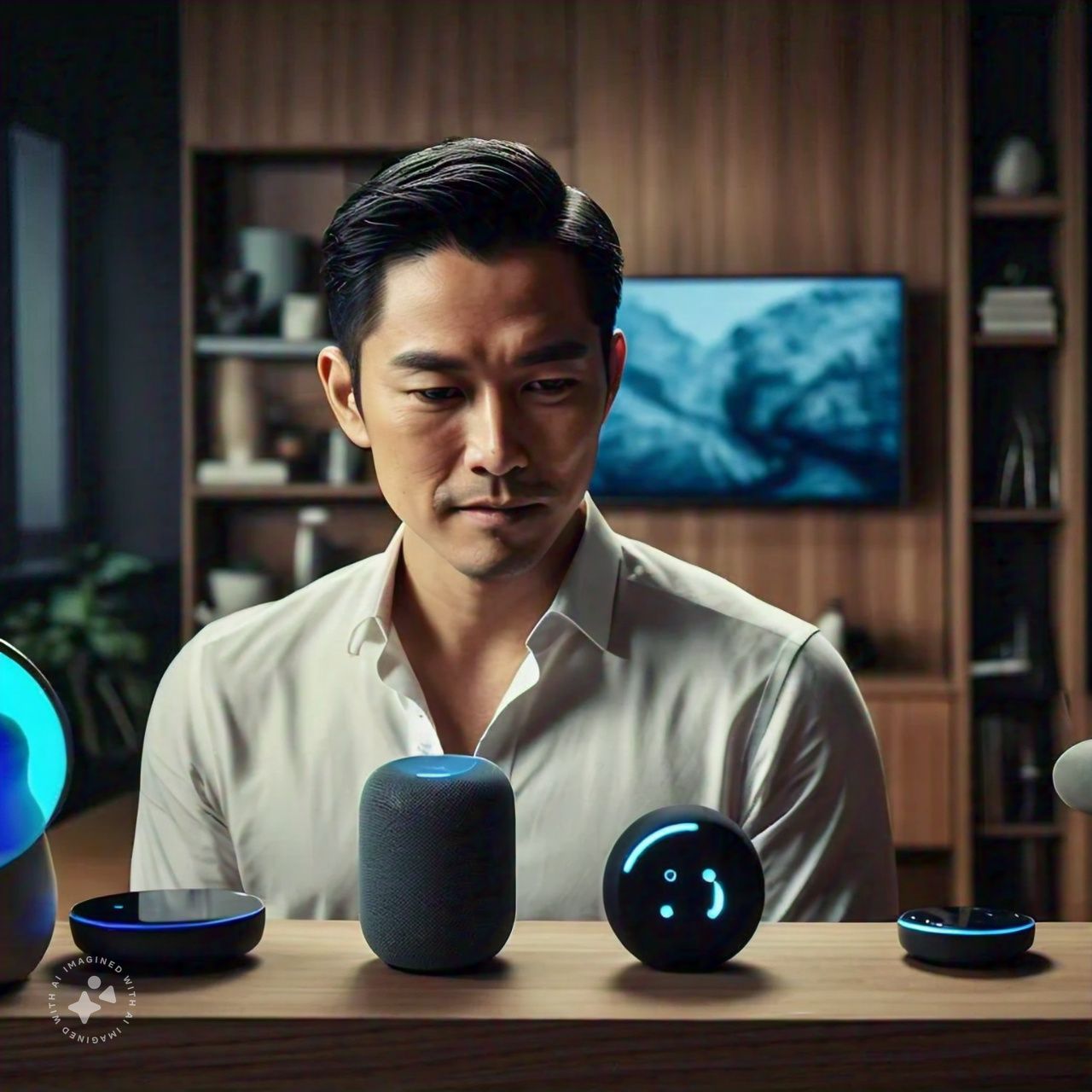Voice Assistants and Smart Home Tech
In the last decade, our homes have become smarter, more efficient, and easier to manage, thanks to the rise of AI-driven voice assistants and smart home technologies. What once seemed like a futuristic fantasy—speaking to your home to control devices, adjust lighting, or even order groceries—has now become a common reality. From controlling your lights with a simple command to setting the perfect temperature before you arrive home, voice assistants like Amazon Alexa, Google Assistant, and Apple’s Siri are revolutionizing the way we interact with our living spaces. This blog explores the dynamic relationship between AI-powered voice assistants and smart home tech, and how they are reshaping home automation.
The Evolution of Smart Homes
The concept of the smart home has been around for decades, but it has only gained widespread adoption in recent years due to advancements in artificial intelligence (AI) and Internet of Things (IoT) technology. In the early days, home automation was limited to pre-set timers or complicated systems that required technical know-how to operate. However, with the integration of AI, particularly through voice-controlled assistants, home automation has become more intuitive and accessible.
Voice assistants serve as the central hub for many smart homes, allowing users to control an array of devices with simple spoken commands. The seamless integration of voice and AI into home automation systems has enabled unprecedented control over various aspects of the home environment, from security to entertainment and energy management.(Voice Assistants and Smart Home Tech)
Key Areas Where Voice Assistants are Transforming Home Automation
- Lighting and Climate Control
- With a voice command, users can adjust lighting, change the room’s ambiance, or even set up schedules for lights to turn on or off automatically. AI assistants like Google Assistant and Alexa enable voice-activated control over smart bulbs and thermostats.
- Temperature control is another major area of improvement. Devices like Nest Thermostat and Ecobee work with voice assistants to automatically adjust the home’s temperature based on your preferences, saving energy and reducing costs.(Voice Assistants and Smart Home Tech)
- Home Security
- Voice assistants now play an integral role in modern home security systems. With devices like Ring, Arlo, or Nest Cameras, users can monitor their homes in real-time through voice commands. For instance, Alexa or Google Assistant can show camera feeds on a smart display or arm a security system by simply asking.
- Features like smart locks and automated alarms can also be controlled through voice commands, making it easier to lock doors, check who is at the door, or get alerts when suspicious activity is detected.(Voice Assistants and Smart Home Tech)
- Entertainment
- Voice assistants have reshaped how we interact with home entertainment systems. Whether it’s playing music, streaming movies, or turning on the television, AI assistants enable hands-free entertainment.
- Multi-room audio systems, like those from Sonos or Bose, can be controlled by voice, allowing users to play different music in each room or synchronize the same song throughout the house.
- Energy Efficiency and Cost Savings
- Voice assistants also help improve energy efficiency by allowing users to monitor and control energy usage in real-time. Devices like smart plugs, smart thermostats, and energy monitors are fully integrated with AI voice systems to help track energy consumption and optimize usage based on habits or preferences.
- This not only reduces energy waste but can also lower monthly utility bills, as these systems often provide insights and suggestions for energy savings.(Voice Assistants and Smart Home Tech)
- Home Management and Daily Routines
- Beyond controlling devices, voice assistants are evolving into personal home management tools. Users can set reminders, create to-do lists, manage calendars, or even order groceries with a simple voice command.
- AI assistants can help automate routines. For example, you could set a “good morning” routine that turns on the lights, plays the news, and starts brewing coffee—all initiated by a single command like, “Good morning, Alexa.”

The Role of AI in Enhancing the Smart Home Experience
What sets voice assistants apart from traditional remote controls or apps is the intelligence built into their systems. These devices are powered by machine learning algorithms that allow them to learn user preferences over time, making the home experience increasingly personalized.(Voice Assistants and Smart Home Tech)
For example, if you frequently ask Alexa to turn the temperature down in the evenings, it will learn this behavior and offer to automate the process. Similarly, Google Assistant can suggest actions based on your previous commands, like dimming the lights when you play a movie in the evening or turning off the TV when it’s bedtime.
This context-aware computing enhances the user experience by offering proactive assistance. Instead of waiting for you to give a command, AI assistants can anticipate your needs and act on them. This level of personalization represents the future of smart home technology, where the house itself becomes an active participant in daily life rather than a passive space you control.
Challenges and Considerations
While AI-driven home automation offers many benefits, there are still challenges to overcome. Privacy concerns are at the forefront, as voice assistants continuously listen for commands, raising questions about data collection and security. Ensuring that your devices are secure, with encryption and proper access controls, is essential in maintaining both privacy and peace of mind.
Additionally, while voice assistants are becoming more integrated with various devices, compatibility remains an issue. Not all smart home products work with every assistant, which can create complications for users trying to build a cohesive system.(Voice Assistants and Smart Home Tech)
The Future of AI in Home Automation
As artificial intelligence continues to advance, the capabilities of voice assistants will only improve. Future smart homes could involve even more automation, with systems that autonomously manage energy usage, maintain security, and adapt environments based on the specific needs of every household member.
Moreover, the integration of AI with augmented reality (AR) or robotics may further transform how we interact with our living spaces, giving rise to homes that feel more like living entities rather than static environments.
Conclusion
The combination of voice assistants and smart home technology is transforming how we live, offering convenience, security, and efficiency. As AI becomes smarter and more integrated, our homes will continue to evolve into dynamic environments that anticipate and respond to our needs. While challenges such as privacy and compatibility still need addressing, the benefits of voice-controlled automation are undeniable, setting the stage for a truly intelligent home future.
Embracing this technology now is not only a step toward more convenience but also toward a more sustainable and connected way of living.(Voice Assistants and Smart Home Tech)

Social Media handles (Facebook, Linkedin, Twitter
Go to our Website for News and Articles: https://informtoyou.com/



